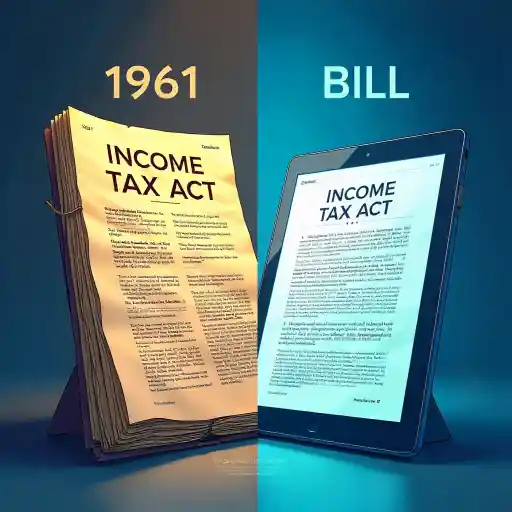Parliament has passed the Income Tax Bill, 2025, replacing the 1961 Act in what is the most comprehensive reform of India’s direct tax laws in over six decades. The law takes effect from April 1, 2026.
Simpler Rules and Language
The Bill reduces sections from 819 to 536, chapters from 47 to 23, and the word count from 5.12 lakh to 2.6 lakh. Dense text is replaced with 39 tables and 40 formulas for easier interpretation. Terms like “previous year” and “assessment year” are replaced with the single term “tax year.” Outdated provisions and language have been removed.

Lower Compliance Burden for Businesses
The law aims to cut compliance costs for individuals, corporates, and MSMEs by simplifying tax procedures. It is also expected to boost efficiency through wider adoption of faceless assessments, reducing direct interactions with tax officials.
Incentives for Startups and Manufacturing
Key measures include extending Section 80-IAC tax benefits for startups until 2030 and introducing a presumptive tax scheme for foreign companies starting electronics manufacturing in India. These steps are expected to encourage new business creation and increase domestic and foreign investment.
Housing Income Clarity
Amendments bring more clarity on how rental income is taxed. For let-out properties, 30% of the annual value (after deducting municipal taxes) will be allowed as a standard deduction — removing past ambiguities. The Bill also clarifies pension tax exemptions, including cases where pension and gratuity are received together by family members.
TDS and TCS Rules Streamlined
All provisions relating to Tax Deducted at Source (TDS) and Tax Collected at Source (TCS) are now grouped under one section for better accessibility.
No Change in Tax Rates
There is no increase in tax rates. The focus is on simplification and administrative efficiency rather than additional revenue collection.
Rapid Drafting and Implementation Plan
The Bill was completed in just six months, with over 75,000 person-hours of drafting work. Implementation will require a reboot of tax department systems ahead of April 2026, along with FAQs, simplified rules, and an information memorandum to assist taxpayers.
